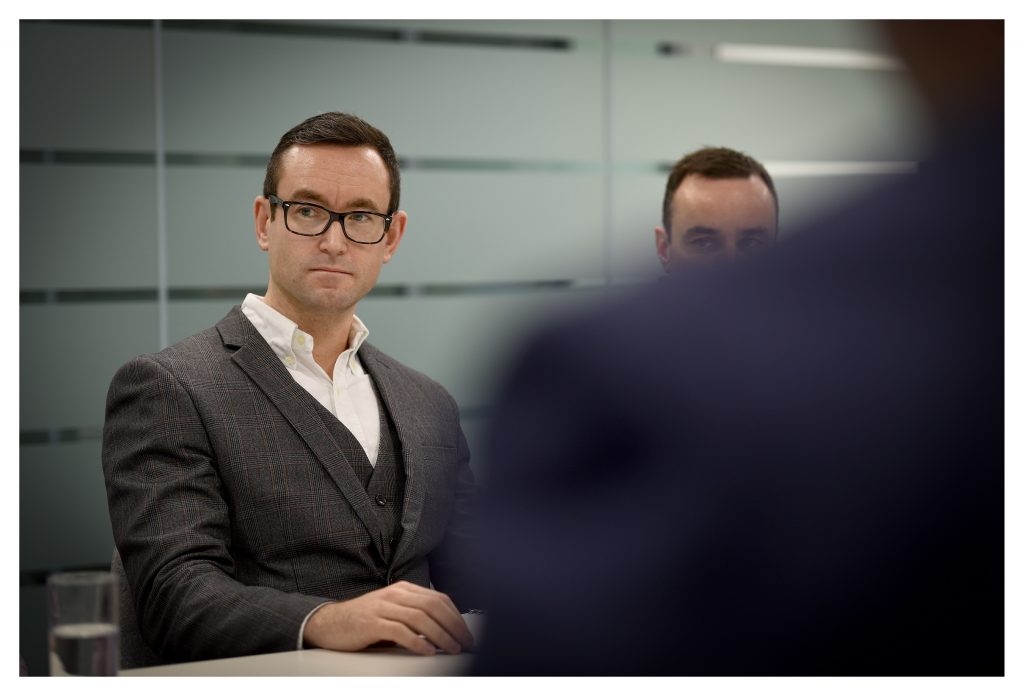What does our MD’s typical working day look like?

Our day-to-day lives are so busy – both in and out of work – and our MD, James Sutherland, was recently interviewed by Business Leader about what his typical working day looks like. If you missed the original article, catch up on what he had to say…
What time do you usually wake up?
During the week, I wake up at 5:30am, but it’s 7:30am at the weekend.
What do you typically have for breakfast?
To kickstart my day, I blend lemon, ginger, half a cucumber and parsley. You can’t beat eggs on sourdough bread at the weekend though!
What is the rest of your morning routine before you start work?
Organised chaos! First thing I do is check any email orders – for our e-commerce store – that we received through the night, then have a flick through BBC news and the Daily Mail, to see what’s in the headlines.
Then it’s time to get the kids out of bed and make them breakfast. While the kids are eating, I make my partner, Louisa, a nice cup of tea – all before heading out the door on the school run. I enjoy the M62 carpark for 50 minutes while speaking with my management team – providing the kids don’t start fighting one another. My mornings run like a well-oiled machine.
What is the first thing you do at the start of your working day?
I plug my car into the charge point – if there’s a space – and once I’m in the office, I start by looking at the meetings I have pencilled in for the day, as well as checking in on live projects and reviewing the cash-flow forecast.
My favourite part of the morning is walking the floor and catching up with each of our departmental managers – it’s a great chance to discuss the week’s priorities.
How do you prioritise your day’s work?
Cash is the lifeblood of the business, so checking balances, plus creditor and debtor payments is always top of my list, and any issues quickly assume priority in my schedule. Next, I look at the flow of secured work through the business, then sales.
Once I’m confident that cash levels are robust, we’re fulfilling our obligations in the delivery of our secured work and the sales pipeline is consistent, my focus moves to growth and innovation…
Do you plan meetings or are they a waste of time?
Meetings are a necessary evil. The key is not to have meetings for meetings’ sake – ensuring agendas are clear and timelines are stuck to. If it starts at 10:00am, it has to begin on time and not drag on for hours.
Do you have a working lunch or is it good to take a break?
For many years, I spent lunchtimes sat at my desk, ploughing through admin tasks. At one point, I suffered with stress headaches and hypertension. Continuing that way was only leading to one end-result, so I decided to install showers in Dortech for all staff to use. Now, I go out running most days – I’ve also managed to get my 5-mile time down to a nudge over 30 minutes.
When does your working day finish?
I typically leave the office between 4:00pm-5:30pm – depending on my parental responsibilities that week. Once I’ve settled at home, I’ll typically do an hour’s work to keep on top of things.
I find the biggest problem to be juggling work and family commitments – while keeping clear boundaries between each. I’ve learned to ignore my mobile phone on Friday nights, not allow mobile phones or iPads at the table, and limit screen time before bed – yes, it works for adults as well as kids!
How do you prepare for the next day’s work?
I keep a manual, rolling updated list of actions I need to complete, outside of my daily core activities. All meetings are then added as calendar events in Outlook and I sync it with all my devices.
Favourite piece of technology?
It’s got to be my iPhone – there’s so much amazing technology in these things!
How do you switch off?
A long run, followed by curling up on the sofa and watching TV – with a glass of wine in hand! If I have the energy, I’ll maybe read an autobiography.
Best piece of advice you’ve received?
Keep your eyes on your own course. Don’t get overly distracted by what the competition are doing, otherwise your ship could end up hitting the rocks. Focus on doing what you do well and engage your staff in generating ideas for how to make your business better.
